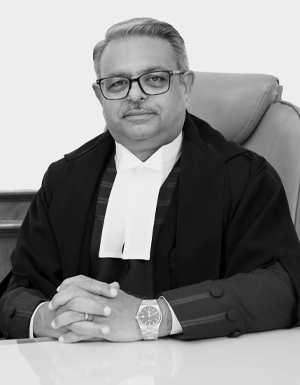
Meet Justice Augustine George Masih and his Notable Judicial decisions
Justice Augustine George Masih is a prominent judge of the Supreme Court of India, known for his expertise in constitutional, service, labour, and civil law. Born on March 12, 1963, in Ropar, Punjab, he completed his early education in Kasauli and Aligarh, followed by a B.Sc. (Hons.) and LL.B. (Hons.) from Aligarh Muslim University. He began his legal career in 1987, practicing before various High Courts and tribunals, and held several key positions in the office of the Advocate General, Punjab. Justice Masih was appointed as an Additional Judge of the Punjab & Haryana High Court in 2008, became a permanent judge in 2011, served as Chief Justice of the Rajasthan High Court, and was elevated to the Supreme Court in November 2023.
Landmark Judgments
1. Juvenile in Conflict with Law v. State of Rajasthan & Anr. (2024)
Justice Masih clarified the law on granting bail to juveniles under Section 12(1) of the Juvenile Justice (Care and Protection of Children) Act, 2015. He held that a juvenile must be released on bail unless the court records specific findings that the proviso to Section 12(1) applies. Denial of bail without such findings is improper, reinforcing the principle of presumption in favor of bail for juveniles.
2. Jalaluddin Khan v. Union of India (2024)
He reaffirmed the doctrine that "bail is the rule and jail is the exception," even in cases with stringent statutory conditions. Denying bail in deserving cases was held to violate Article 21 of the Constitution, which guarantees the right to personal liberty.
3. Chandigarh Housing Board v. Tarsem Lal (2024)
Justice Masih held that Scheduled Tribe (ST) status is state-specific, based on Presidential notification under Article 342. A person recognized as ST in one state cannot claim the same status in another state unless notified there, providing clarity on the application of reservation benefits across states.
4. Jitendra Paswan Satya Mitra v. State of Bihar (2024)
He ruled that once a court grants bail, its implementation cannot be postponed, as any delay infringes the accused’s rights under Article 21. He intervened when the Punjab and Haryana High Court delayed bail enforcement without justification.
5. Abdulmajid Abdulsattar Memon v. State of Gujarat (2024)
Justice Masih granted bail to an accused when charges had not yet been framed, emphasizing the importance of timely procedural justice.
6. Bhawana Gupta v. State of Punjab (2023)
As a High Court judge, he granted interim bail to Times Now reporters accused under the SC/ST Act, considering their professional standing and the circumstances of the case.
Judicial Philosophy
Justice Masih’s judgments consistently uphold constitutional rights, especially the right to liberty under Article 21. He has championed procedural fairness, the presumption of innocence, and non-arbitrary application of law, particularly in matters of bail and reservation. His decisions reflect a commitment to both the letter and spirit of the Constitution, with a focus on protecting individual rights and ensuring justice is not delayed or denied












comments